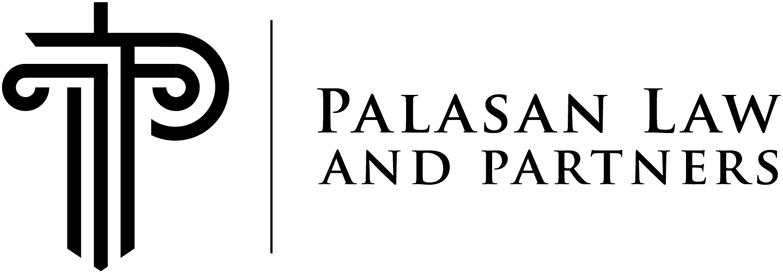The Supreme Court En Banc, in a Decision penned by Justice Samuel H. Gaerlan, has denied the Petition for Certiorari and Mandamus filed by Clarlyn A. Legaspi, et al. against the Commission on Elections (COMELEC) in relation to the 2022 elections held in Pangasinan.
On May 27, 2022, the COMELEC, through its Executive Director, received a signature campaign petition, titled “APELA PARA SA MANO-MANONG PAGBILANG MULI NG MGA BOTO SA PROBINSYA NG PANGASINAN” (APELA), questioning the results of the elections held in the whole province of Pangasinan on May 9, 2022 and requesting for a recount of the votes cast.
The COMELEC Law Department responded on May 31, 2022, informing the signatories that the APELA did not comply with requirements for election protests.
Atty. Laudemer I. Fabia, who was responsible for preparing and circulating the APELA, replied with a letter on June 15, 2022, claiming he is speaking for more than 71,000 duly registered Pangasinan voters whose signatures could be found in the APELA. According to Atty. Fabia, the COMELEC must reconsider their request given that the APELA is not an election protest filed by a losing candidate, but a People’s Initiative to petition the COMELEC for a manual recount of votes. He also claimed that the APELA is an exercise of their right to information on matters of public concern.
In response, the COMELEC Law Department, in a letter on July 7, 2022, directed them to COMELEC Resolution No. 10650, which provides the requirements in the filing of petitions to commence the process of initiative and referendum.
This was regarded by Atty. Fabia as a denial of their request for manual recount, prompting him and other APELA signatories (petitioners) to go to the Supreme Court.
In dismissing their petition, the Court stressed that an actual case or controversy must exist for the Court to exercise its power of judicial review. There is an actual case or controversy when the aggrieved party’s rights are fully established to be extant, due, and demandable vis-à-vis the other party’s actions, which either violate or deny the said rights, held the Court.
In the case of the petitioners, they claim that their constitutional rights (1) of suffrage, (2) to petition the government for redress of grievances, and (3) to have access to information on matters of public concern were affected by the COMELEC’s supposed denial of the APELA and of their request for manual recount.
The Court, however, held that there was no violation of their right of suffrage, given that they were able to exercise their right to vote by casting their votes on May 9, 2022. Neither was there any proof of manipulations and anomalies that would have prevented their votes from being counted. The Court also stressed that there is no statutory basis for the manual recount the petitioners are requesting.
The Court explained that while the right of suffrage should cover the accompanying right to have one’s votes properly and rightly counted, the basis must be concrete proof of an initiating party’s rights and violations (existing or impending). Mere speculations and surmises, such as in the case of the petitioners, are insufficient for purposes of determining whether a case constitutes a justiciable controversy.
As for petitioners’ right to petition the government for redress of grievances, the Court held that nothing prevented the petitioners from being heard before the COMELEC and before the Court. The petitioners’ right to express their apprehensions and doubts with regard to the conduct and results of the 2022 elections is constitutionally guaranteed and recognized, and there is no indication at all of the said right being violated or stymied, ruled the Court.
Neither did the Court find violations of the petitioners’ right to information. Tracing the jurisprudence on freedom of information (FOI) cases, starting from Subido v. Ozaeta in 1948 to the present, the Court underscored the constitutional right of the people to information on matters of public concern and that access to official records, and to documents and papers pertaining to official acts, transactions, or decisions, as well as to government research data used as basis for policy development, shall be afforded the citizen, subject to such limitations as may be provided by law.
The Court ruled that it is clear from jurisprudence how the Court accords primacy to such a fundamental right of an ordinary citizen to inquire into the dealings and functions of governance and administration. Subject to certain exceptions and limitations, a citizen whose right to FOI has either been denied or violated by a government agency may bring a suit for mandamus for the vindication of said right and the judicial compulsion of disclosure and/or grant of access to State information crucial to the public discourse and welfare, said the Court.
Such bias in favor of transparency and accountability is in keeping with democratic traditions, hence, no government agency may keep the proverbial door to such records shut in the absence of any compelling justification that must be judicially approved, the Court stressed.
However, in the case of the petitioners, the Court found that their right to FOI was not violated. First, the language in the APELA and Atty. Fabia’s letters did not mention anything about a request for the grant of access to any documents relative to the operation and transmission of vote-counting machines, other than a vague invocation of the petitioners’ right to FOI, without any particulars. Hence, such generally worded, overly broad, and vague references cannot rightly be considered to have been a proper demand for FOI, ruled the Court.
Second, the Court found that the petitioners failed to exhaust available administrative remedies when they did not resort to the COMELEC’s established FOI procedure as outlined in its FOI Manual, which provides a well-defined procedure by which a citizen may request for access to information in the custody of the COMELEC’s offices and officials. The Court noted that the COMELEC’s FOI procedure is complete with a procedure for the administrative appeal of denials of FOI requests and an express recognition that “[u]pon exhaustion of all administrative remedies, the requesting party may file the appropriate judicial action in accordance with the Rules of Court.” In the case of the petitioners, there was no denial of their right to FOI, since there was no proper FOI request to begin with, despite the COMELEC’s exhaustive FOI policy and manual in place since 2020, said the Court.
The Court also held that there is a need to reexamine the notion that mandamus, which is awarded only when a petitioner’s legal right to the performance of a particular act is clear and complete, is still the appropriate remedy to enforce and recognize the people’s constitutional right to FOI in light of government agencies such as the COMELEC having crafted and promulgated FOI procedures that now appear to be quasi-judicial in nature.
That the COMELEC’s FOI Manual provides for the constitution of an appeals and review committee to decide appeals from initial denials of FOI requests means that the administrative process as spelled out in the FOI manuals and procedures of government agencies have actually and already become discretionary and no longer purely ministerial, the Court said. Hence, actions on FOI requests before government agencies with established FOI procedures, which involve the determination of the factual and legal aspects of the said requests are deemed to be discretionary actions properly reviewable by either appeal or certiorari, depending on the circumstances.
The Court added that the petitioners, who should be commended for their courageous stance when they signed and filed the APELA, can still avail of the remedies contained in the COMELEC’s FOI manual for the information they seek vis-à-vis the truth of the May 9, 2022 National and Local Elections.
The Court also noted the following as additional grounds to dismiss the petition: the required verifications are defective as the facts stated in the petition were not based on the petitioners’ personal knowledge or on authentic documents; the petitioners have no legal standing since there is no concrete injury given that they were not prevented from participating in the 2022 elections; and the petition cannot be classified as a class suit for its failure to attach the APELA signature pages for the Court’s verification.
The Court concluded by underscoring that its ruling affirms the people’s constitutional right to FOI by its recognition and strengthening of FOI procedures duly crafted and promulgated by government agencies such as the COMELEC. This is also in keeping with the Court’s deference and respect accorded to the COMELEC as the sole constitutionally empowered electoral body and watchdog having primary competence and specialized expertise over all things election-related, said the Court.
The Supreme Court Public Information Office shall upload a copy of the Decision in G.R. No. 264661 (Legaspi, et al. v. COMELEC) once it receives a copy from the Office of the Clerk of Court En Banc. (Courtesy of the Supreme Court Public Information Office)

